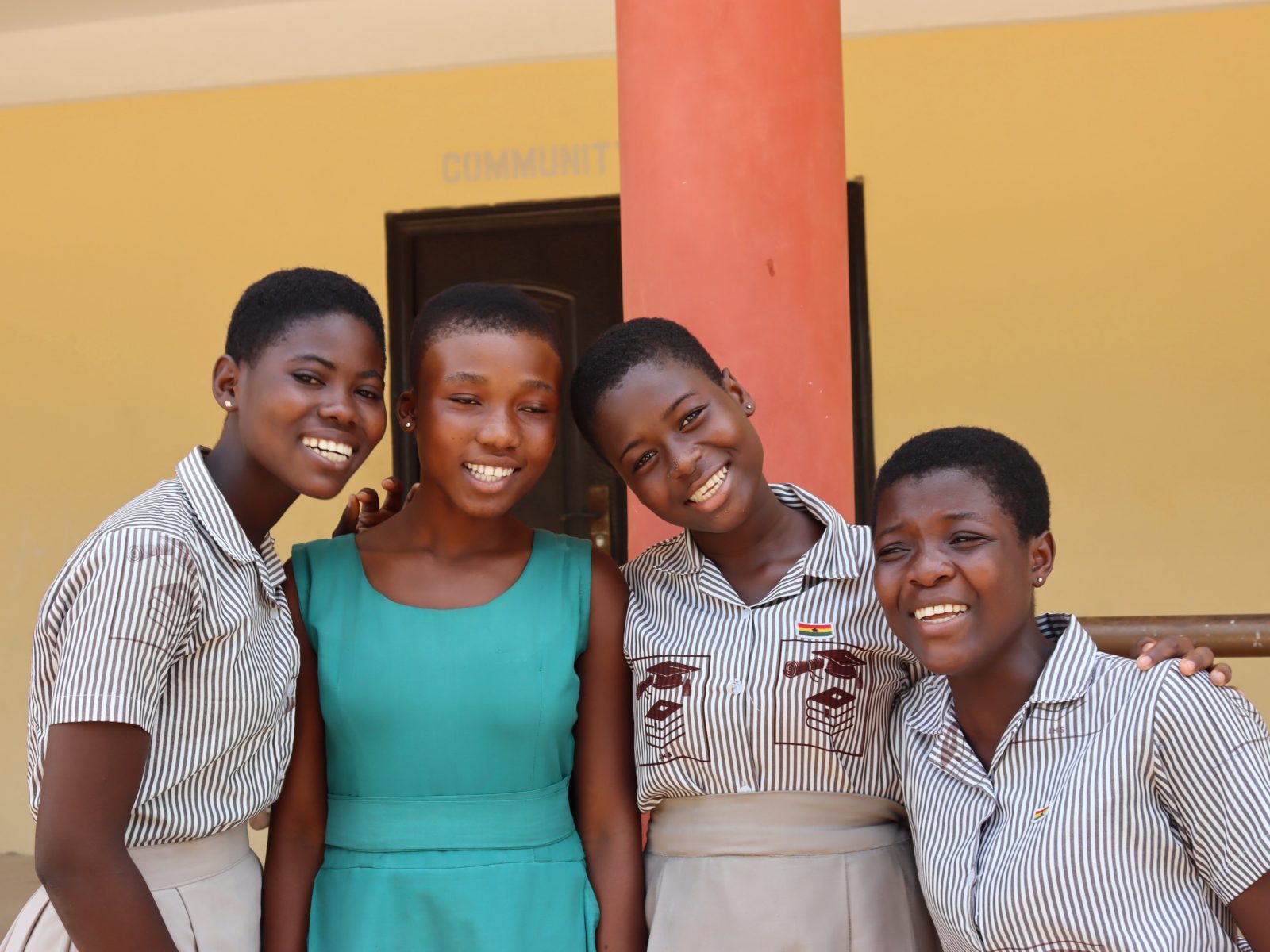In Ghana, 29% of children do not complete primary education (65% in rural areas, where we work); 53% do not complete Junior High School and 65% do not complete Senior High School (UNESCO, 2020). In rural areas, access to pre-primary education is just 38%, compared to 90% for urban areas, with teaching standards and access to resources extremely variable. This situation has been exacerbated by Covid-19 school closures, with the number of out of school children leaping from 35,432 in 2019 to 265,188 in 2020 (UNESCO, 2018).
EduSpots is a small yet innovative organization working with young people across 50 underserved communities in rural Ghana, working with a range of local stakeholders in this process including youth organizations, school headteachers, traditional leaders, district assemblies, religious organizations, the Ghana Library Authority and other organizational partners, , recognising that sustainable systems change depends upon effective local and national collaboration led by those who understand their communities.
Our network of over 250 voluntary community-based educators, including 39% young people under 25, are empowered to create quality, creative and community-centered learning opportunities for over 10,000 children through our 50 community-led and owned library education centres named ‘Spots’. These Spots are overseen by local Spot management committees, who oversee a local child safeguarding and protection strategy, with ongoing costs sustained by the communities themselves and educational and mentoring support provided by our experienced Ghana-based staff team, 50% of whom are also Spot volunteers.
After receiving training through our core training programme – the Ignite Programme – EduSpots’ voluntary community educators lead education clubs for JHS students in collaboration with local science and literacy partners, believing in the power of collaboration. Our EduLit and EcoSTEM clubs, which aim to improve students’ skills in creativity and critical thinking, enable them to see the applications of their learning to their community, whilst advancing their basic skills and exam performance in core curriculum subjects. Simultaneously local teachers and wider volunteers grow their abilities in student-centered pedagogy, exposing them to effective teaching strategies that will be implemented in their wider classroom teaching, driving exam performance and school engagement.
26% of girls reported sexual violence with 220,000 females 15-24yrs are illiterate (UNESCO Institute for Statistics, 2019). In many of our communities, teenage pregnancy is prevalent, with many of our local volunteers showing concern that girls do not always understand their rights or have the confidence to assert themselves in decision-making.
EduSpots has always had a strong gender equity focus, working with many talented young female students through our partnership with African Gifted’s African Science Academy to give small grants to enable talented young female science and engineering students to create Spots in their communities, disrupting local gender power hierarchies in the process. In 2023, EduSpots is launching the Ignite Girls programme, which will lead to over 200 JHS girls joining locally-led girls’ empowerment clubs, equipping girls with local female mentors in the process.
Over 1.74 million people are unemployed in Ghana with many young people looking for work opportunities. Through our volunteer training, we are equipping young people with the skills they need to enter the workplace. Our 12-month Community Leadership in Education (CLEd) programme enables committed volunteers to gain skills in project management, social entrepreneurship and education, equipped with grant funding, resources and a mentor. Each year, half of our CLEd Catalysts progress into paid part-time Peer Mentor roles for the next cohort, enabling them to have a stepping stone into employment, with seven volunteers also joining our own staff team since 2018, two of whom progressed to receive full scholarships to study education and development in the UK.
In the process of our work, we are ultimately creating a network of active citizens, engaged in developing their home communities through education; students observe the volunteerism they benefit from, and become the future community changemakers.

